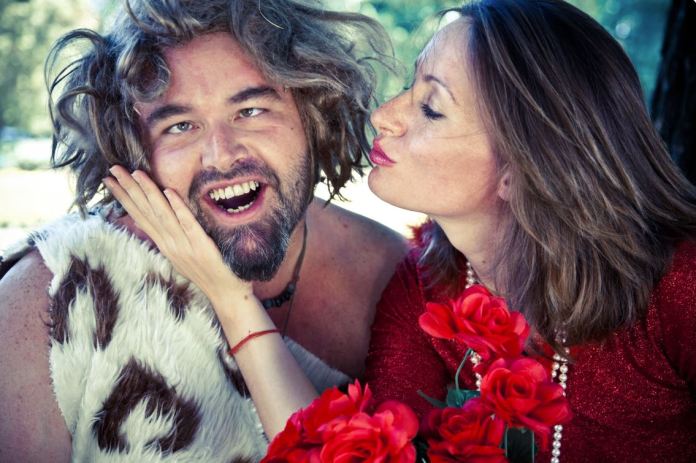People think about unconditional love as being spiritual or being something so good and righteous that everyone wants to pursue it. It sounds like the perfect world and the perfect love, but we all know that it isn’t real.
Trying to love someone unconditionally will leave you always feeling like you aren’t good enough or you aren’t doing enough.
Do you feel that you can love someone under any condition that they treat you or any way that they behave?
We have unconditional love to children and babies but beyond that, we have values and morals that we live by. Are you ready to love someone even when they break these things that are important to you?
Unconditional love means that you ignore things that are not loving and are not kind. Here are reasons that unconditional love is bad in a real relationship:
This Kind of Love is Fake
People need to learn to be more accepting, but they also need more boundaries. You have to have boundaries because relationships bring conflict, and this means that you are not going to be ready to accept everything that your partner hands to you.
Accepting a person and their behaviors is not real. If someone is not working through their bad behavior and their issues, will you still be able to love them and stay with them? You should never have to negotiate things in your life such as your values.
Getting Out
If you love someone unconditionally, it means that they can treat you any way that they want, they can lie or cheat on you and you will still love them. They can abuse you or treat you like garbage.
Can you really love someone that treats you that way? Some people will do whatever they want in a relationship because they want to be in control. If you believe in unconditional love, it means that your partner can treat you any way that they want and they can abuse you, talk down to you or even take advantage of you.
Where Did Unconditional Come from?
Unconditional love is not a spiritual thing, it is something that was introduced by a psychologist, Erich Fromm and he believed that unconditional love was something a mother had for her children because she never expected anything out of them.
He also stated that fathers do not have the same love as a mother. He believes that a father wants his children to act a certain way and if they do, he will show them love.
Now you can see why unconditional love is different. Love often depends on the person and how they are acting, and this happens because unconditional love is not real between people, and someone will always be trying to make things work out that aren’t working out.
Being in a relationship means that you have a mutual agreement on how you are going to treat each other. You have general interests, and you live together in a relationship as together but independent and this brings happiness.
A good relationship will not have unconditional love because this would be a self-sacrificing relationship completely and no one would ever want to be in that kind of relationship.
Unconditional Love Takes Away Justice
If you loved someone unconditionally, you would never be able to say anything when they treated you poorly. You would just have to accept it.
Love has a purpose, and no one expects there to be unconditional love. We are people that want to have a meaning to everything and when we have fights or problems, we want to face them and grow from them.
Unconditional love means that you never question behavior, but you accept all behavior. Who wants to live in a relationship where you are treated however someone wants to treat you?


So, are you telling me that by rejecting unconditional love, I can finally stop pretending to enjoy my partner’s awful cooking? Thank you for justifying my culinary standards. Seriously though, a bit more optimism would do wonders for your viewpoint.
What a thought-provoking article! It really challenges the romanticized notion of unconditional love that society often upholds. The distinction made between the unconditional love parents, particularly mothers, have for their children and the conditional love in adult relationships is quite eye-opening. This perspective underscores the importance of maintaining personal boundaries and mutual respect in healthy relationships. Truly, a relationship should be a partnership where both individuals grow together, not a one-sided sacrifice.
The practical issues of unconditional love, such as ignoring harmful behavior, are significant. Relationships require a balance of acceptance and the enforcement of personal boundaries to function healthily.
The exploration of unconditional love and its origins reveals much about our societal expectations of relationships. The idea that unconditional love can negate justice is particularly thought-provoking.
The notion that unconditional love can undermine justice and personal growth is crucial. It’s important for individuals to maintain their dignity and not compromise their values for the sake of an unrealistic ideal.
Indeed, it seems that unconditional love, in its idealized form, is not feasible in real adult relationships. Respect and mutual understanding should always be prioritized.
I couldn’t agree more with the insights shared in this article. The idea that unconditional love could potentially enable destructive behaviors in a relationship is a crucial point that many overlook. It’s refreshing to see an emphasis on the importance of self-respect and boundaries, which are essential for a fulfilling and balanced relationship. This article eloquently debunks the myth of unconditional love in adult partnerships and highlights the necessity of mutual respect and understanding for a truly healthy and happy relationship.
The historical perspective on unconditional love, as introduced by Erich Fromm, is quite enlightening. It underscores the difference between maternal love and romantic relationships, emphasizing the necessity of expectations and mutual respect in the latter.
The argument that unconditional love can lead to self-sacrifice and potentially abusive dynamics is compelling. It’s important that both partners in a relationship maintain their values and set clear boundaries to ensure a healthy and respectful partnership.
I find your perspective on unconditional love quite illuminating and, frankly, a bit harsh. While it’s true that boundaries are fundamental in any relationship, suggesting that unconditional love is entirely unattainable seems overly cynical. Could we not argue that striving for such an ideal brings out the best in us, even if we fall short?
Indeed, the concept of unconditional love presented here lacks both pragmatic and philosophical substance. Erich Fromm’s interpretation holds a specific context and has been subject to extensive debate in psychological circles. A more nuanced understanding would recognize the gradations and complexities in human emotional connections.
This article is utterly pessimistic. You’re basically saying love is conditional and transactional. How disheartening! The notion that we should always be prepared for conflict and betrayal makes relationships sound like a battleground.
Your argument is logically sound but fundamentally flawed. Unconditional love doesn’t mean accepting abusive behavior; it means loving someone despite their flaws while also having the strength to leave when necessary. It’s not black and white.
The concept of unconditional love in adult relationships is indeed perplexing. While it’s easy to romanticize the idea, the practical implications seem troubling. Relationships thrive on mutual respect and boundaries, which are essential for personal well-being.